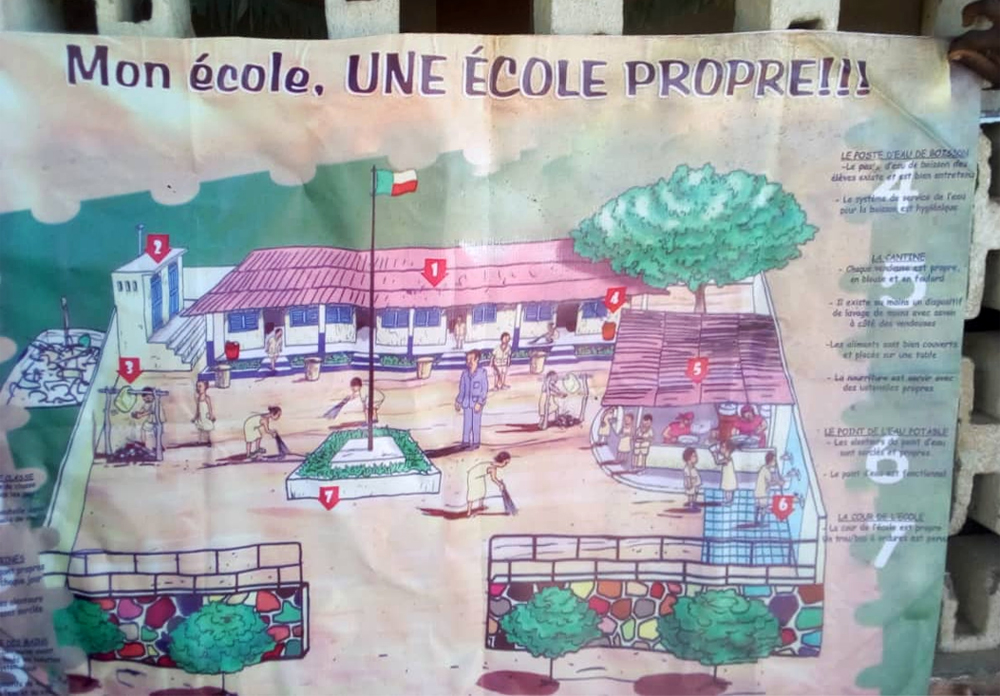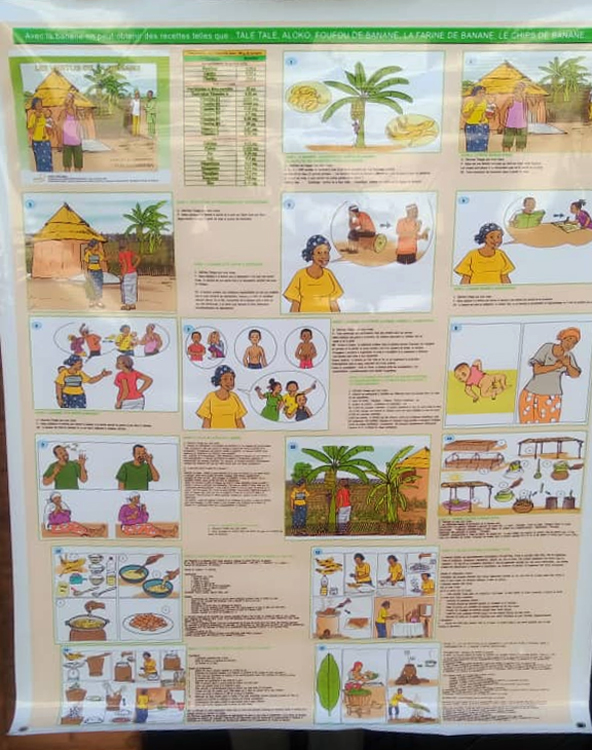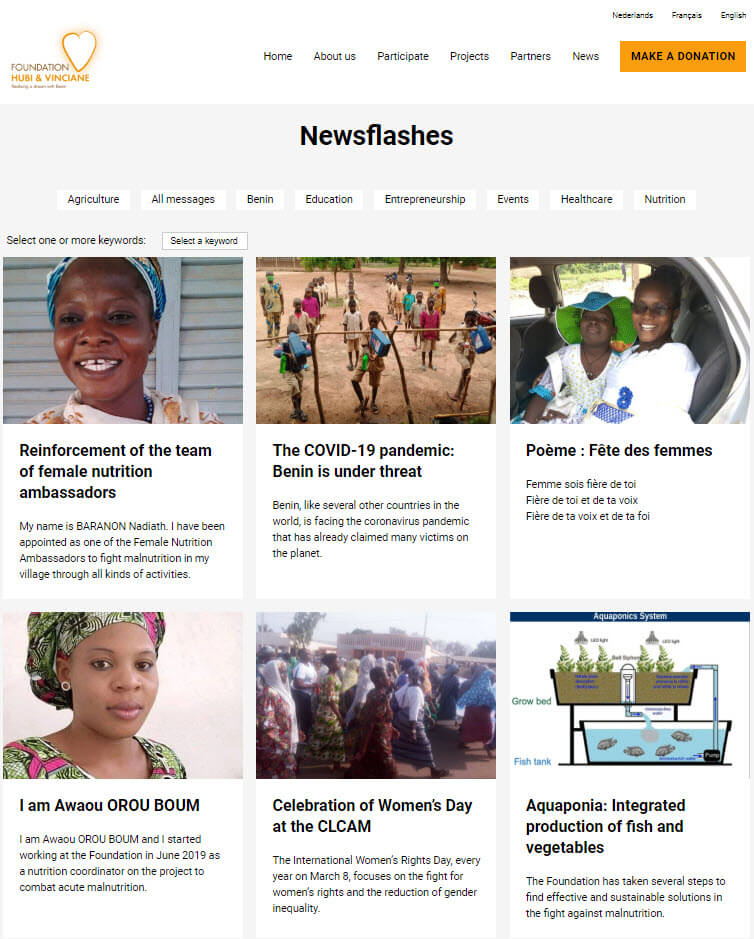Clean water for school!
You cannot live without clean water. Unfortunately, many Beninese people still do not have access to clean drinking water today. It is therefore challenging, if not impossible, for them to practice the necessary hygiene. This lack of hygiene leads to illnesses and health problems such as diarrhoea and even typhoid fever.

The Foundation has thus given top priority to the installation of wells and essential sanitary and hygienic equipment in the fifty schools it cooperates with, in the Borgou region.
Thanks in part to the support of the Foundation, some 30 schools already have wells with drinking water. It is time now to look into the rest of the schools.
These wells not only make a big difference for the students and teachers, but also for the inhabitants of the neighbourhood. After all, they too can make use of them.
Wells in schools
Access to clean water is a profound change for schools. Teachers and students no longer have to bring their own water. There is always clean water in the handwashing systems. The canteen can prepare the food with clean water. Toilets can be cleaned. And there is enough water for the school vegetable garden.
For the villagers, too, the availability of drinking water represents a significant improvement: they can wash, cook hygienically, and they can even produce food to sell.
So many things that were not possible before. In schools that do not yet have access to drinking water, teachers and students bring their own water. Teachers tie a 25-litre container to the back of their motorcycles; students bring 0.5 or 1-litre bottles with them. This is often too little, especially in times of drought, and especially for children who cannot go home in the afternoon because they live too far away (5 to 7 km on foot).
There is not enough water to drink, let alone to wash their hands. Besides, students often bring polluted water from the river.
The installation of a well costs about 7000 euros.
Sanitary blocks
Not all schools dispose of toilets. And even if they do, the number of toilets is often too low, considering the number of students and teachers. Today they have on average three toilets for every three hundred people. In schools that do not have access to a well, it is also impossible for staff to keep the toilets clean.
The installation of a toilet block with three toilets costs about 1,000 euros.
Handwashing systems
To wash their hands, schools use tippy taps, handwashing systems made from recycled materials.
The installation of a tippy tap costs about 20 euros.

Awareness-raising actions
The Foundation is investing not only in facilities but also in hygiene awareness campaigns. In each school, ambassadors are trained to, under the supervision of a teacher, convince their classmates of the importance of good hygiene. They explain the importance of regular handwashing with soap and water, especially after using the toilet and before eating. They also show why it is crucial to be very careful with food and that flies, and cockroaches can transmit diseases. They use posters, songs, poems, and videos. The ambassadors regularly repeat all these actions. The effect is gradually visible. In schools that have water, students wash their hands much more spontaneously. But there is still a lot of work to be done, especially in schools where no wells have yet been installed.
An awareness kit for a school with all the materials costs about 50 euros.
UNICEF video
The video clip produced by UNICEF is one of the tools that our ambassadors use in their awareness-raising activities. Children are encouraged to wash their hands regularly with soap and water.
“Listen to mommy.”
With the film “Listen, mom“, they want to show the Beninese people why the use of pure water is so important. The river water is polluted and carries all kinds of diseases. The film also explains how to store food hygienically.
Meet one of our friendly ambassadors.
She explains that good hygiene is essential to prevent disease.
Theater of our ambassadresses
Four of our ambassadors demonstrate the importance of good hygiene through a play. Listen to the hospital doctor who explains in detail what you need to do to prevent these diseases.

